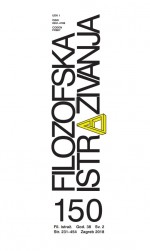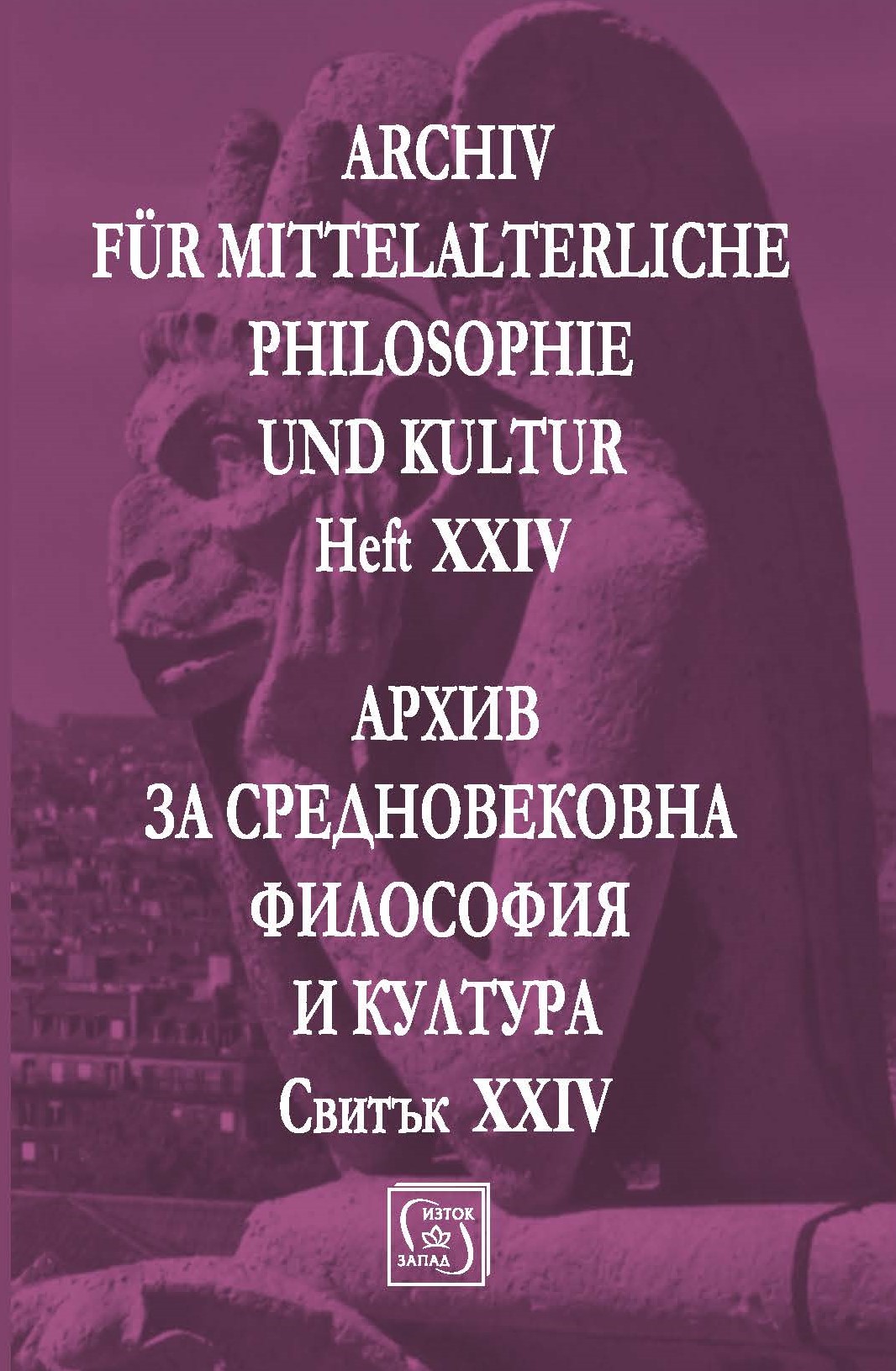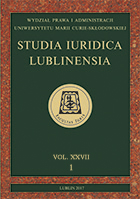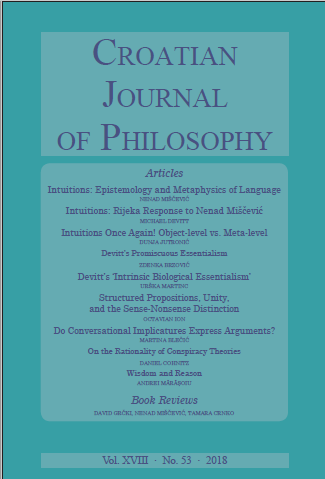We kindly inform you that, as long as the subject affiliation of our 300.000+ articles is in progress, you might get unsufficient or no results on your third level or second level search. In this case, please broaden your search criteria.
Review of: Epistemologické zošity I., Trnavská univerzita, Trnava, 1995, 45 s.
More...
Pod týmto názvom sa v dňoch 28.-29. 3. 1996 uskutočnila na Filozofickej fakulte UPJŠ v Prešove filozofická konferencia s medzinárodnou účasťou, žiaľ, bez francúzskych kolegov, ktorú organizačne i obsahovo pripravila Katedra filozofie. Veľké jubileum - 400. výročie narodenia R. Descarta, ktoré si pripomína v tomto roku celý filozofický i kultúrny svet, stalo sa mimoriadnou príležitosťou na aktuálnu filozofickú analýzu myšlienkového odkazu zakladateľa novovekej filozofie. Jednotlivé príspevky, ktoré na konferencii odzneli, boli orientované na rôzne dimenzie Descartovej filozofickej inciatívy.
More...
The paper is written on the honour of Jean Piaget´s centenary. His work can be seen very heterogeneous on the first sight. He was concerned about molluscs, psychogenesis of children and the history of science. I am trying to show that what unites these different disciplines is Piaget´s ability to “perceive” epistemological problems. That makes possible to go through many disciplines and to be preciously consisted and integrated.
More...
Po takej priamej a osobnej výzve, akú som dostal od P. Cmoreja v stati [3] (s. 188 a 189) mi neostáva iné, než sa vrátiť k téme vývinu pojmov a odpovedať na otázky 1. až 5., ktoré kladie vo všeobecnosti zástancom vývinovej teórie pojmov, ako aj na otázky a) a b), ktoré kladie mne osobne. Vraciam sa k nej nerád. Neobľubujem paradoxy, či už logické, alebo ľubovoľné iné.
More...
Peter Stach uverejnil v predchádzajúcom čísle Organonu F Niekoľko poznámok k piatim tézam M. Kanovského 11 ], ktorými reagoval na môj stručný článok Päť predbežných té: o exaktnosti [2].
More...
Podľa základného postulátu, na ktorom N. Losskij vybudoval svoju teóriu pravdy, predmety vonkajšieho sveta poznávame priamo v origináli, tak ako existujú, nezávisle na našom vedomí.
More...
Historicko filozofický záujem, ale zrejme aj aktuálne potreby našej súčasnej filozofickej aktivity prinajmenej pri pokusoch o objasnenie jej vlastnej identity v nových podmienkach v poslednom období upútava pozornosť gnozeologická diskusia na Slovensku v štyridsiatych rokoch.
More...
Review of: Karl R. Popper: Hľadanie lepšieho sveta,Prednášky a state. ARCHA 1995,229 s.
More...
To, že spoznávanie nie je možné bez toho, aby sme spoznávali niečo, všeobecnejšie povedané: že nie j e možné usudzovanie, ba dokonca ani vznik predstáv bez toho, aby sme súdili o niečom, niečo si predstavovali, to patrí k tomu najsamozrejmejšiemu, o čom nás informuje už celkom elementárne pozorovanie týchto zážitkov.
More...
Ústredná téza intuitívneho realizmu, zastávaného na Slovensku od roku 1942 univ. prof. Losským (Kritika noetiky R. Carnapa s hľadiska ideálu poznania, Filozofický sborník V, 1944, s. 98136) a od toho istého roku aj jeho asistentom Dr. J. Dieškom (1. rozmnožená prednáška Kritický alebo intuitívny realizmus? (K sporu o realizmus v súčasnej noetike), 1943, 2. Problém intuitivizmu v súčasnej noetike, Filozofický sborník IV, 1943, s. 5788, 3. Kritický> či intuitívny realizmus? Filozofický sborník V, 1944, s. 136150, 4. Kritický' či intuitívny realizmus, Bratislava 1944), znie takto: »vynazierame skutočnosť priamo v origináli tak, ako ona skutočne existuje nezávisle na našom vedomí...« (1), »vo vedomí je aj sám vonkajší, nami poznávaný predmet, a to tak, ako je vonku mimo nás« (2, s. 81), »i tzv. zmyslové kvality nie sú subjektívne, ale objektívne vo alebo na veciach« (1).
More...
Podľa mnou vypracovanej teorie poznania, ktorú nazývam intuitivizmom, subjekt poznáva nielen svoje duševné stavy, ale aj predmety vonkajšieho sveta bezprostredne, t.j. nie prostredníctvom kópií, symbolov, konštrukcií svojho rozumu atď., ale v origináli, privádzajúc ich do oblasti svojho vedomia pomocou intencionálnych aktov uvedomovania, pozornosti, rozlišovania, usmernených na ne tak, že sa stanú imanentnými jeho vedomiu.
More...
Conversation between Pavel Cmorej and Jaroslav Peregrin
More...
Review of: Eric Margolis, Stephen Laurence (ur.) ,The Conceptual Mind New Directions in The Study of Concepts, MIT Press, Cambridge (MA) – London 2015.
More...
This exposition regards to some moments of the theory of will of Duns Scotus as it is presented in Ordinatio II, distinctio 38. According to the Thomist’s teachings, the will is considered an intention of the intellect toward happiness, i.e. toward goodness. In this sense, the will is affectio comodi. The problem of this conception, as Duns Scotus thinks, is related to the question of the freedom of will. Scotus does not accept the idea that the will, on one hand, is freely acting power and at the same time is power, which desires goodness with necessity. That is the reason, Soctus to bring into his philosophical system one additional necessary guarantee for the freedom of will – and that affectio iustitiae, which is precisely the focus of this paper.
More...
In this paper, precedents are analysed in terms of reasons that they can give to judges in various legal systems, with the purpose of identifying the ways in which precedents can be authoritative in judicial reasoning. The analysis starts with the distinction between two kinds of precedents – precedents of solution and precedents of interpretation. The ways in which both precedents of solution and precedents of interpretation affect the reasoning of future courts are identified and described, in order to focus on instances in which this affection can be considered practically and epistemically authoritative. Finally, conditions for considering under which it can be justified to treat precedents as authoritative are laid down, with a special emphasis on the possibility of justifying the epistemic authority of interpretative precedents.
More...
Conspiracy theories seem to play an increasing role in public political discourse. This development is problematic for a variety of reasons, most importantly because widespread belief in conspiracy theories will undermine the institutions of open societies. One of the central questions that will need to be answered here if we hope to find out why conspirational thought is recently gaining such support and to find out how to respond to it, is the following: what mindset leads to the belief in conspiracy theories? People who believe in conspiracy theories are often ridiculed as nutcases, tinfoil hats, and paranoid crackpots, while they portray themselves as particularly critical, better informed and enlightened responsible citizens. Finding out which of these characterizations is correct is crucial for coming up with the appropriate response to the rise of conspirational thought. In this article, I want to discuss this question and the phenomenon of conspirational thought in two respects. First, I want to explain how philosophy, and epistemology in particular, is essential for understanding the phenomenon and for developing a strategy to deal with the harmful kind of conspirational thought. Secondly, I want to show how epistemology in turn can learn from studying this phenomenon.
More...
Tendencie budovať vedecké teórie, ktoré by úplne a vyčerpávajúco dokázali opísať určité materiálne objekty alebo určitú štruktúrnu úroveň objektívnej reality sa v dejinách vedy objavujú pravidelne.
More...
...aristotelismus a spřízněné filosofie nám tak dlouho tvrdily, jak důležité j e dojít k přesnému poznání významu našich termínu, že jsme tomu všichni nakloněni. A nadále se tohoto kréda drží navzdory nespornému faktu, že filosofie, která se už dvacet staletí trápí nad významem svých termínů, je plná verbalizmu a navíc otřesně neurčitá a ambivalentní, zatímco věda, jako třeba fyzika, která se sotva stará o termíny a jejich význam, ale o fakta, dosáhla vysoké přesnosti.
More...